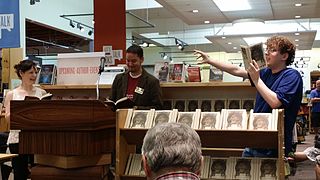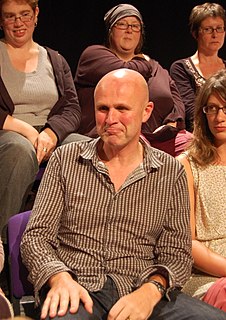A Quote by Johann Wolfgang von Goethe
Shakespeare is dangerous to young poets; they cannot but reproduce him, while they fancy that they produce themselves.
Related Quotes
The ideal audience the poet imagines consists of the beautiful who go to bed with him, the powerful who invite him to dinner and tell him secrets of state, and his fellow-poets. The actual audience he gets consists of myopic schoolteachers, pimply young men who eat in cafeterias, and his fellow-poets. This means, in fact, he writes for his fellow-poets.
Truth is far and flat, and fancy is fiery; and truth is cold, and people feel the cold, and they may wrap themselves against it in fancies that are fiery, but they should not call them facts; and, generally, poets do not; they are shrewd, they feel the cold, too, but they know a hawk from a handsaw, a fact from a fancy, as none knows better.
There are five things that societies do: They reproduce; they produce food; they organize themselves in terms of law; they organize themselves in terms of belief; and they make art. Four of them are about conformity, and in these, everything would go more smoothly if people just would shut up and do what they're told. But in art it doesn't work that way.
I think that what's happening today, with all the young poets rushing from one college to another, lecturing at the drop of a hat and so on, is not too good; I think it might have a bad effect on a great many of the young poets. They - to quote Mark Twain - "swap juices" a little too much, so that they are in danger of losing their own identity and don't give themselves time enough in which to work out what's really of importance to them - they're too busy.
I'll not meddle with it; it is a dangerous thing; it makes a man a coward; a man cannot steal, but it accuseth him; a man cannot swear, but it checks him; a man cannot lie with his neighbor's wife, but it detects him. 'Tis a blushing, shame -faced spirit, that mutinies in a man's bosom ; it fills one full of obstacles; it made me once restore a purse of gold that by chance I found; it beggars any man that keeps it; it is turned out of all towns and cities for a dangerous thing; and every man that means to live well endeavors to trust to himself and live without it.
Among the English authors, Shakespeare has incomparably excelled all others. That noble extravagance of fancy, which he had in so great perfection, thoroughly qualified him to touch the weak, superstitious part of his readers' imagination, and made him capable of succeeding where he had nothing to support him besides the strength of his own genius.
In the work of the greatest geniuses, humble beginnings will reveal themselves somewhere, but one cannot trace the slightest sign of them in Shakespeare ... I am not concerned with who wrote the works of Shakespeare ... but I can hardly think it was the Stratford boy. Whoever wrote them had an aristocratic attitude.






































